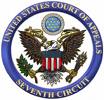Seventh Circuit Week in Review: Corporate Criminal Liability, Reconsideration of Suppression Rulings, and More
 The Seventh Circuit had four new opinions in criminal cases this week. The cases addressed the mens rea requirements for corporate criminal liability, procedural aspects of suppression hearings, child pornography sentencing, and conditional guilty pleas. Taking the cases in that order:
The Seventh Circuit had four new opinions in criminal cases this week. The cases addressed the mens rea requirements for corporate criminal liability, procedural aspects of suppression hearings, child pornography sentencing, and conditional guilty pleas. Taking the cases in that order:
In United States v. L.E. Myers Co. (No. 07-2464), the defendant corporation was convicted of criminal OSHA violations in connection with the electrocution death of one its employees. The Seventh Circuit (per Judge Sykes) reversed and remanded for a new trial in light of erroneous jury instructions. The errors related to mens rea issues. Myers was convicted under a statute that bases liability on the knowing creation of a hazardous condition in knowing violation of an OSHA requirement.
The problem is that a corporation, as a legal construct, cannot really know anything; the only way a corporation knows something is to the extent the law is willing to impute the knowledge of particular employees to the corporation. Seventh Circuit precedent indicated that “corporations ‘know’ what their employees who are responsible for an aspect of the business know.” More specifically, the corporation was said to know what an employee knows if the employee has a duty to report that knowledge to someone higher up in the corporation.


